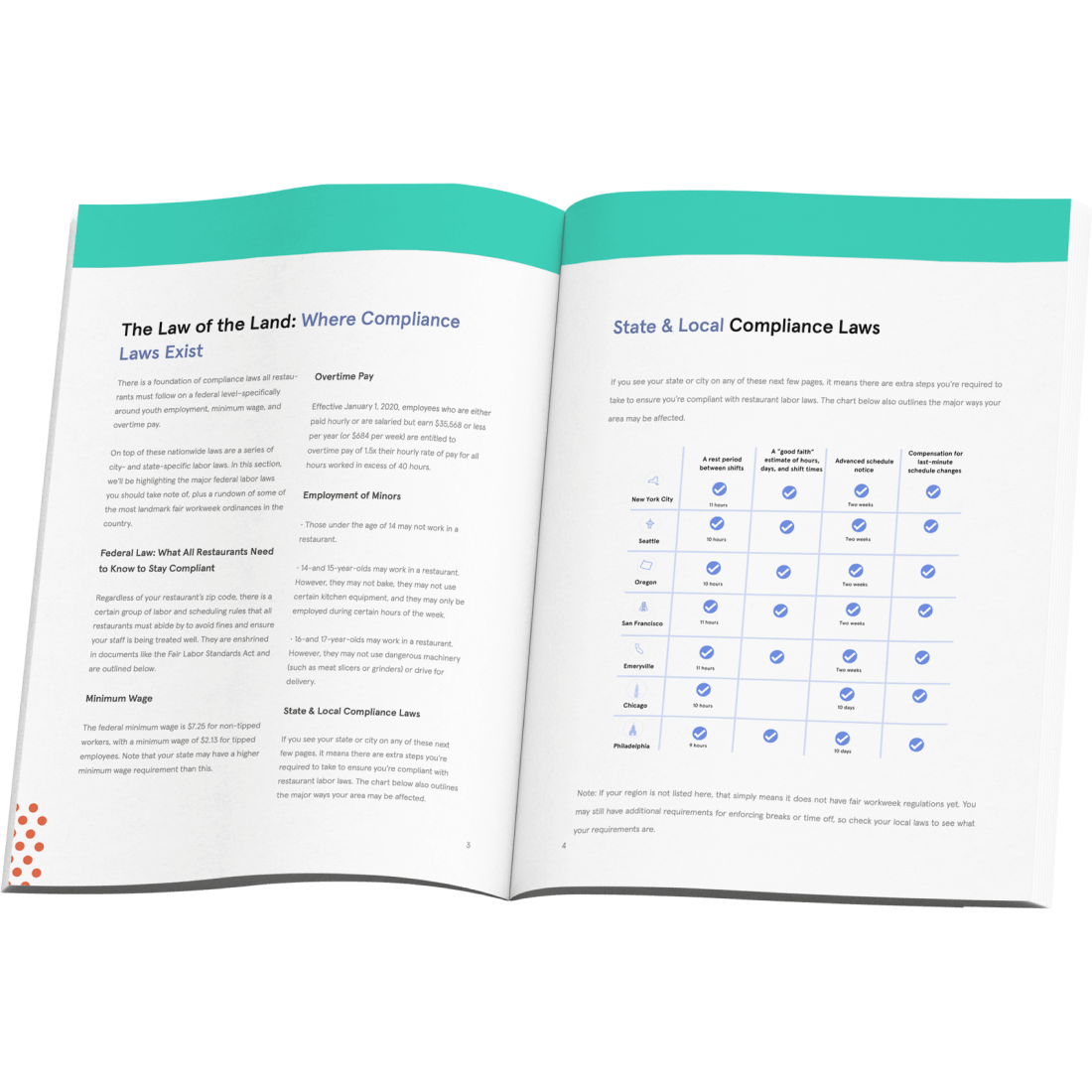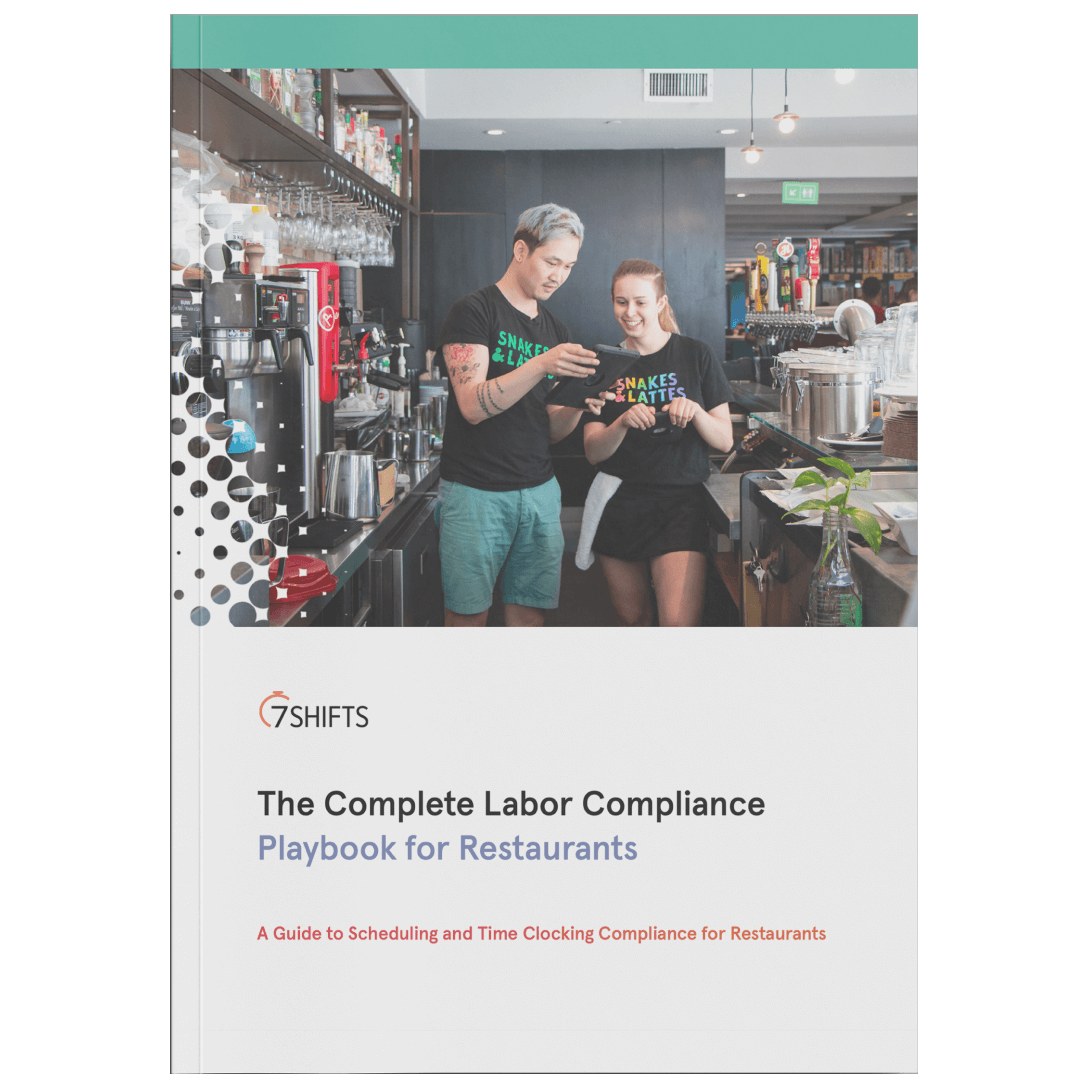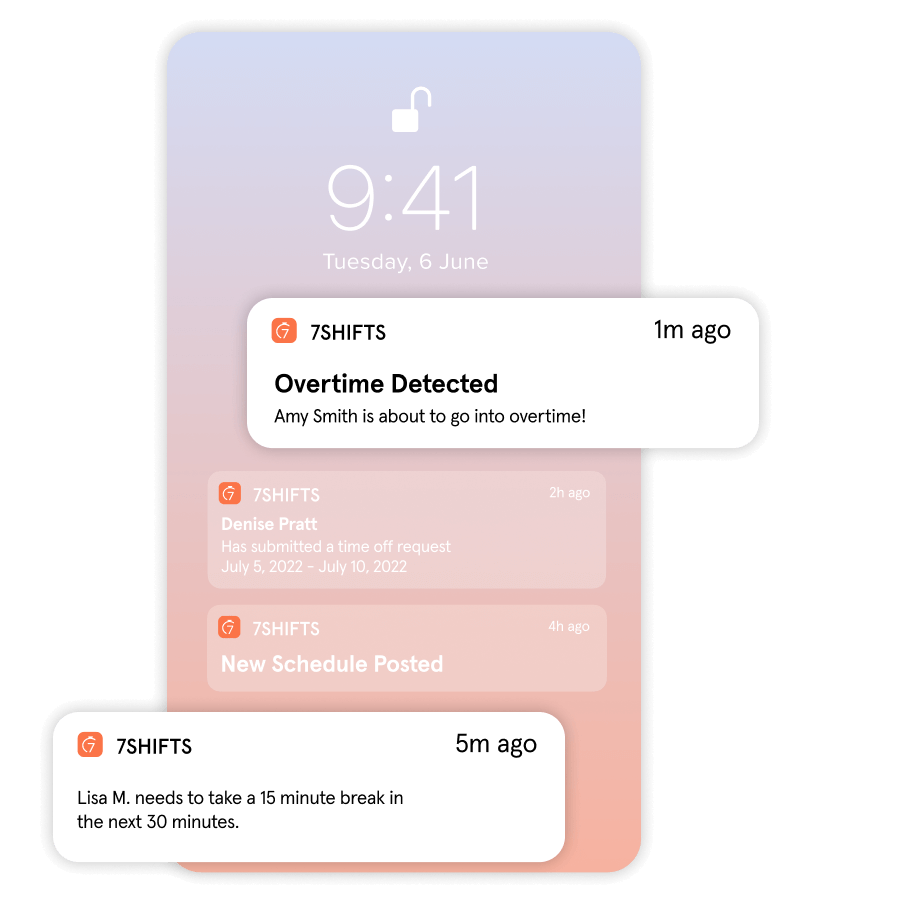Free Restaurant Labor Compliance Guide
The Compliance Playbook for your restaurant to avoid $10,000s in fees
Your complete guide to navigating the complex labor compliance, predictive scheduling, and fair work week landscape—plus what it means for your restaurant.


Your complete guide to navigating the complex labor compliance, predictive scheduling, and fair work week landscape—plus what it means for your restaurant.


What's inside?
In this guide, we’ll break down the laws that your restaurant needs to know around labor compliance, and provide you with the knowledge and resources to step confidently into this new world of regulatory compliance.
Topics covered include:
An overview of regional and national compliance laws across the United States
A look into the future of restaurant labor legislation
A complete checklist for labor compliance for franchises and brands
Checklist for predictive scheduling compliance for restaurant managers
Strategies, tips, and technology




What is labor compliance, and what does it mean for your restaurant operation?
Labor compliance refers to adhering to the federal, state, and city laws around record-keeping, minimum wage, youth employment, scheduling, and overtime–all of which are critical to understand at your restaurant operation to implement the right compliance strategies and avoid penalties.
A Compliance Dictionary:
- Predictive Scheduling: the right of employees around the predictability of their schedule—how many hours they should expect to work each week, when those hours might fall, and when they can access that schedule.
- Fair Workweek: the legal movement that includes predictive scheduling laws and other issues like allowing employees to give input on their schedules, charging employers from mandating last-minute scheduling changes, or discouraging employers to schedule employees for “clopens.”
- Predictability Pay: the money employers must pay employees when the employer breaches fair workweek laws. This is also referred to as “premium pay.”